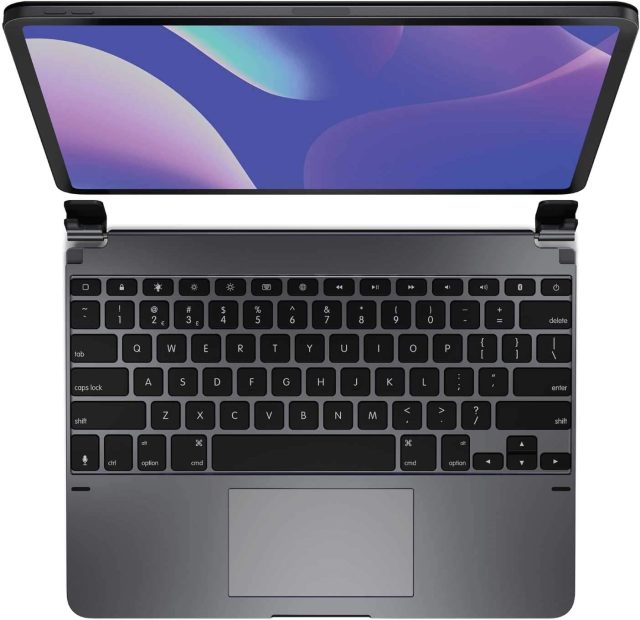Brydge, the company that once aimed to make high-quality iPad keyboards and turned it all into MacBooks, has gone out of business. The company’s website Just a sloganAnd employees and pre-order customers haven’t heard anything for months, and 9to5Mac has a detailed account of Brydge’s fallsupported by conversations with approximately a dozen former employees.
You should read the entire investigation if you want to know how mismanaged growth, a hostile workplace, a pandemic, and the nerve-wracking nature of trying to work with Apple in tandem led to the closure of Brydge. You’ll read about business, leadership, and marketing decisions that in hindsight signal an inevitable conclusion. But there’s also an inside story about what it’s like to try to hitch your wagon to the whims and preferences of the world’s largest tech company.
Brydge is known for making Apple accessories, especially keyboard cases for the iPad, with an emphasis on materials, design, and functionality aimed at surpassing Apple’s own accessories. They were made of aluminum, had a laptop-like hinge, and their keyboards were backlit. In October 2019, Brydge attempted to get a six-month leap forward on Apple by releasing the Pro+ built into the iPad Pro’s trackpad. Since iPadOS 13 does not have native trackpad support — which will arrive with iPadOS 13.4 in March 2020 — Brydge Keyboard has used a workaround for Assistive Touch accessibility. Trackpad and its implementation disappointed Critics like Jason Snell of Six Colors.
When Apple’s Magic Keyboard arrived in April 2020, it came up with not only full trackpad software support and a fancy Apple-made keyboard, but multi-finger gestures that Apple wouldn’t offer for the Brydge. However, Apple offered them to industry leader Logitech for it Touch bag combo. Apparently, Brydge caught Apple and Logitech by surprise by launching products just months after launching their own. When Apple reached out to Brydge to offer better access to its trackpad, Brydge gladly agreed — and quickly got a lesson in energy dynamics, according to 9to5Mac’s sources.

Bridge/Amazon
“Apple wanted Bridge to take the lead in offloading the framework used by the Magic Keyboard in a way that would allow the use of third-party accessories,” Chance Miller wrote. Apple offered support, but Brydge’s questions would raise questions on Apple’s part about whether Brydge was a worthwhile partner, and whether it needed Apple’s help “very early in the process.” Apple has refused to provide debugging tools and will answer engineers’ questions with suggestions rather than direct fixes.
All the while, Brydge’s completely unfastened Pro+ has suffered an average return rate of over 20 percent. Brydge could not tell customers about its work with Apple on its trackpad, under a non-disclosure agreement. Full trackpad support shipped in February 2021, nearly a year after Logitech and Apple products. The company continued to spend marketing money on Pro+, a vital product that will fund further expansion. After you have come to this post, you will probably be aware of how this works.
From there, Brydge was hungrily chasing acquisitions, first by Razer and then Targus, and maybe even Foxconn. High product return rates, exceptionally high employee turnover, and plenty of financial question marks will follow. Employees laid off after one failed acquisition in January are still owed their final payments, and most people who have Pre-ordered ProDock In January we haven’t heard anything yet. Brydge issued a press release that its brand and intellectual property had been “acquired by a third party via a foreclosure process initiated by the principal lender” and ceased operations.
Again, you can read more about it What happened on 9to5Mac.
Listing image by Brydge

“Typical beer trailblazer. Hipster-friendly web buff. Certified alcohol fanatic. Internetaholic. Infuriatingly humble zombie lover.”
